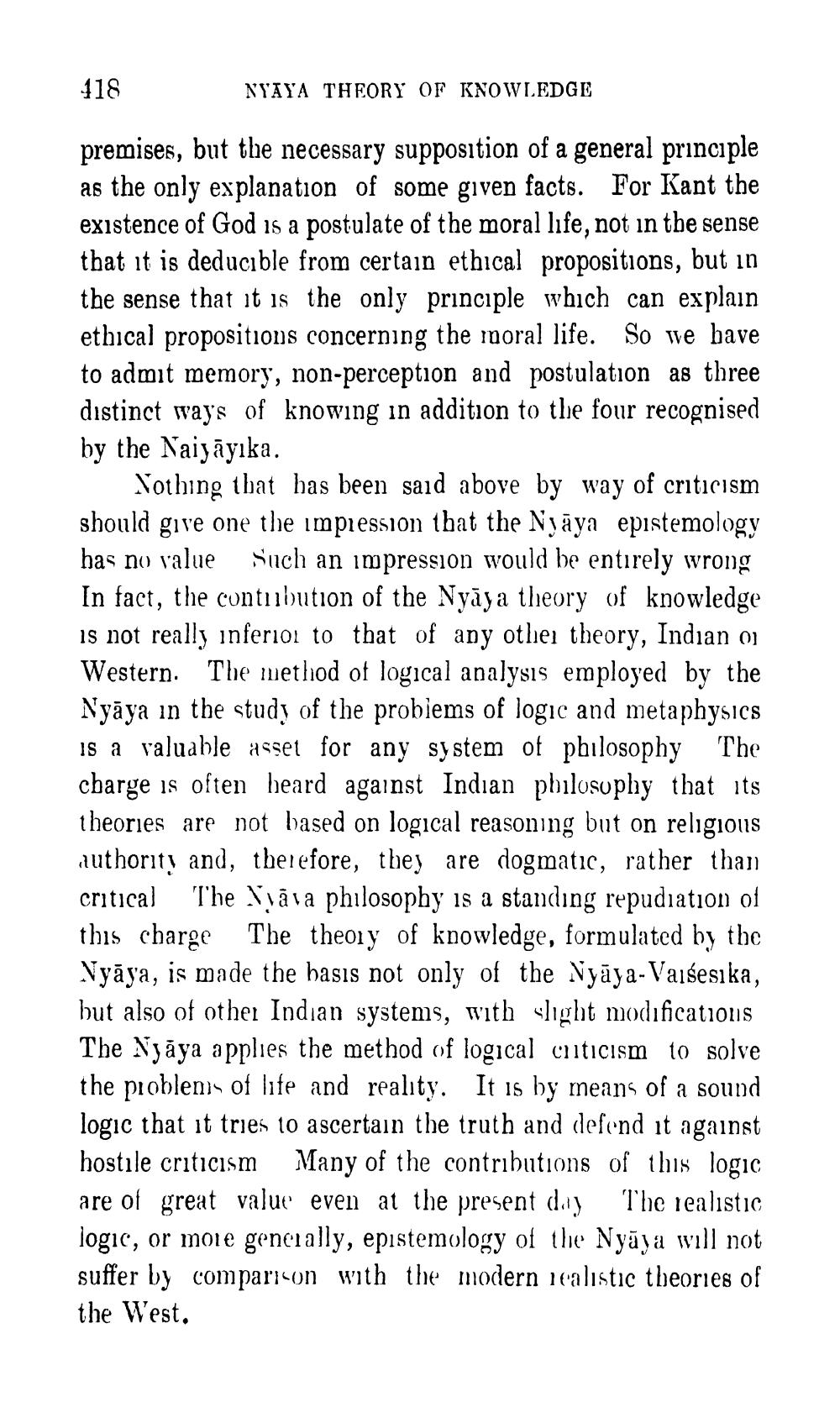________________
118
NYAYA THEORY OF KNOWLEDGE
premises, but the necessary supposition of a general principle as the only explanation of some given facts. For Kant the existence of God is a postulate of the moral life, not in the sense that it is deducible from certain ethical propositions, but in the sense that it is the only principle which can explain ethical propositions concerning the moral life. So we have to admit memory, non-perception and postulation as three distinct ways of knowing in addition to the four recognised by the Naiyāyika.
Nothing that has been said above by way of criticism should give one the impression that the Nyāya epistemology has no value Such an impression would be entirely wrong In fact, the contubution of the Nyāya theory of knowledge is not really inferior to that of any other theory, Indian oi Western. The method of logical analysis employed by the Nyāya in the study of the problems of logic and metaphysics is a valuable asset for any system of philosophy The charge is often heard against Indian philosophy that its theories are not based on logical reasoning but on religious authority and, therefore, they are dogmatic, rather than critical The Viāva philosophy is a standing repudiation of this charge The theory of knowledge, formulated by the Vyāya, is made the basis not only of the Nyāya-Vaišesika, but also of other Indian systems, with slight modificatious The Nyāya applies the method of logical criticism to solve the problenis of life and reality. It is by means of a sound logic that it tries 10 ascertain the truth and defend it against hostile criticism Many of the contributions of this logic are of great value even at the present day. The realistic logic, or more generally, epistemology of the Nyāya will not suffer by comparison with the modern calıstic theories of the West.




